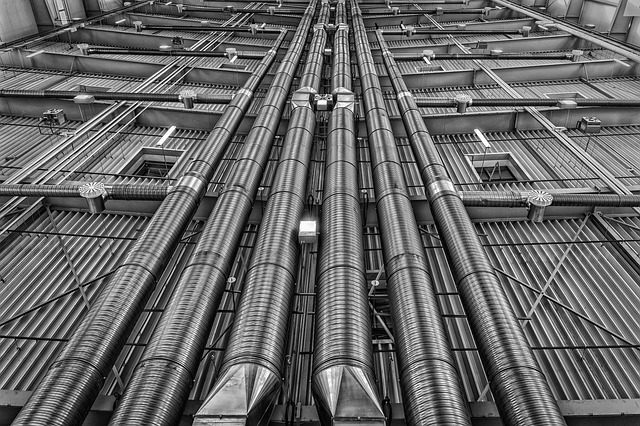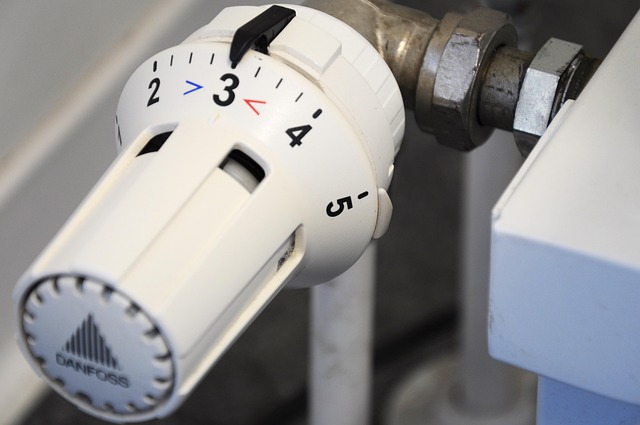Commercial electric boilers represent a cutting-edge solution for institutional and business heating, offering unparalleled efficiency, flexibility, and minimal infrastructure needs. These grid-powered systems replace traditional fuel setups, eliminating storage requirements with precise temperature control suitable for diverse applications like institutional heating and commercial HVAC. With high-capacity options and modular designs, these boilers provide scalable solutions that adapt to businesses' evolving demands, contributing to cost savings and environmental sustainability while promoting efficient industrial electric heating.
“Revolutionize your business operations with standalone commercial electric boilers—a game-changing technology demanding minimal external infrastructure. This innovative system offers a sleek, efficient solution for heating needs, setting it apart from traditional boiler setups.
In this comprehensive guide, we’ll explore the advantages of embracing minimal external infrastructure, delve into key features, and present real-world case studies showcasing successful implementations. Discover how commercial electric boilers are transforming industries.”
- Understanding Standalone Commercial Electric Boilers
- Advantages of Minimal External Infrastructure
- Key Features and Considerations for Installation
- Case Studies: Success Stories in Implementation
Understanding Standalone Commercial Electric Boilers

Standalone commercial electric boilers are innovative solutions designed to offer institutions and businesses a highly efficient and flexible heating option with minimal external infrastructure requirements. These advanced systems differ from traditional boiler setups by drawing power directly from the electrical grid, eliminating the need for on-site fuel storage or complex distribution networks. By harnessing electric heating systems, commercial spaces can achieve precise temperature control, making them ideal for various applications, including institutional heating and commercial HVAC systems.
Commercial boiler technology has advanced significantly to accommodate diverse needs. High-capacity electric boilers are now available, catering to large-scale operations while ensuring energy efficiency. Electric steam boilers and electric hot water boilers form the backbone of these standalone systems, providing versatile options for process heating and hot water supply. Moreover, modular boiler systems offer a scalable solution, allowing businesses to customize their heating capacity as per requirements, contributing to overall cost savings and environmental sustainability in industrial electric heating applications.
Advantages of Minimal External Infrastructure

One of the primary advantages of standalone commercial electric boilers is their minimal reliance on external infrastructure. This simplicity translates into numerous benefits for businesses and institutions. Without the need for complex piping networks or on-site fuel storage, installation and maintenance costs are significantly reduced. Electric heating systems, particularly modern commercial boiler technology, offer unparalleled energy efficiency, as they directly convert electricity into heat with minimal waste.
This efficiency is further boosted by the versatility of these boilers. High capacity electric boilers and modular boiler systems can be easily scaled to meet varying demand, making them suitable for a wide range of applications, including institutional heating and commercial HVAC systems. Moreover, electric hot water boilers provide consistent and reliable hot water supply, contributing to the overall sustainability and cost-effectiveness of operations.
Key Features and Considerations for Installation

When installing standalone commercial electric boilers, several key features and considerations come into play. These units are designed for minimal external infrastructure, making them highly versatile for various institutional heating needs. One prominent advantage is their energy efficiency, a significant factor in reducing operational costs, especially with high-capacity electric boilers that can cater to substantial heating demands.
The installation process involves careful planning to accommodate the physical dimensions of these electric steam boilers or electric hot water boilers. Commercial boiler technology offers modular systems, allowing for easy expansion or customization based on specific requirements. This flexibility is particularly beneficial in dynamic commercial HVAC systems, ensuring institutions can adapt to changing energy needs while promoting sustainable practices with advanced industrial electric heating solutions.
Case Studies: Success Stories in Implementation

In recent years, numerous organizations have successfully adopted standalone commercial electric boilers, showcasing their versatility and benefits across various sectors. These case studies highlight the practicality of minimal external infrastructure requirements, as these boilers offer a streamlined solution for efficient heating and hot water supply. For instance, a leading food processing facility in Europe transitioned from traditional gas-fired systems to high-capacity electric boilers, resulting in significant energy savings and reduced carbon emissions. The implementation involved modular electric steam boilers tailored to their specific needs, ensuring seamless integration into their existing commercial HVAC system.
Another notable success story comes from a large institutional heating provider who replaced their old, inefficient boiler fleet with modern, energy-efficient electric hot water boilers. This transformation not only improved their operational efficiency but also allowed for better control and monitoring of energy consumption. The adoption of advanced commercial boiler technology has been a game-changer, particularly in urban areas where space is limited, demonstrating that electric heating systems can meet the demands of even the busiest industrial settings.
Standalone commercial electric boilers, with their minimal external infrastructure requirements, offer a revolutionary solution for efficient heating. By eliminating the need for complex networks, these boilers streamline installation and reduce operational costs. The key features discussed, along with successful case studies, highlight their versatility and environmental benefits. Embracing this technology can transform commercial spaces into sustainable, energy-efficient environments, ensuring a greener future for all.






